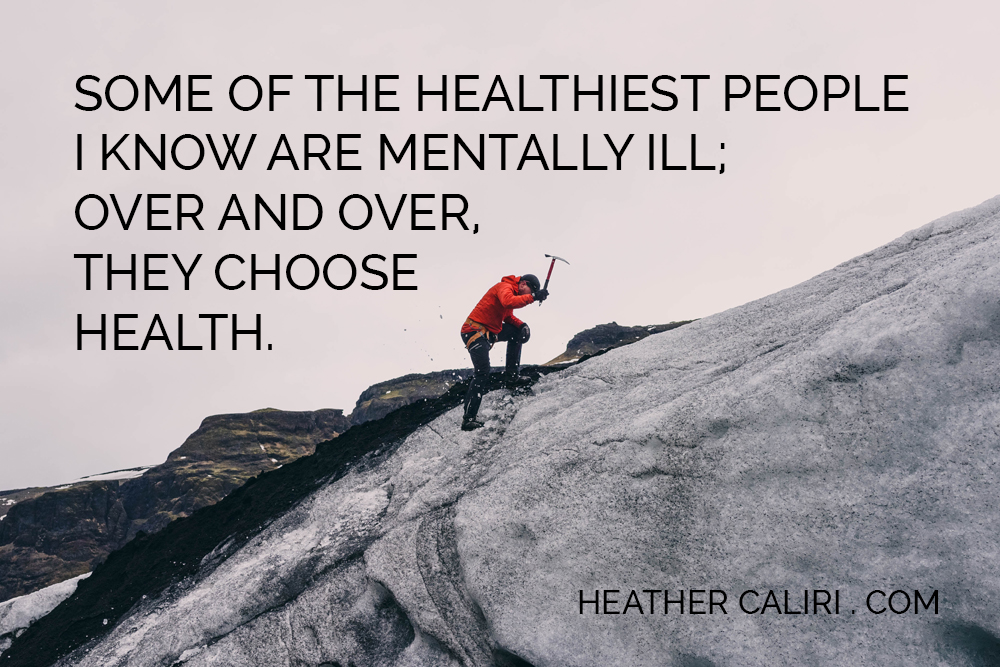
“In a wiser, more self-aware society than our own, a standard question on any early dinner date would be: ‘And how are you crazy?'”
Alain de Botton, “Why You Will Marry the Wrong Person“
When I was six, my nine-year-old sister, Katie, was put into a mental hospital for three months.
There’s a lot to say about that time, more than I can say here. But one of the results was this:
I grew up assuming my sister was crazy.
After all, since she’d been committed, I knew that there was something wrong with her. I knew, so clearly, that nothing was wrong with me.
Back then, I assumed my normalcy would prove our family’s normalcy. So I worked so hard at normalcy. It was a heavy thing to make our family seem normal even with one kid screaming in a padded room.
In sixth grade, my parents and I played Scrabble a lot. The three of us drank Perrier and lime; they let me look up words in the dictionary. The clock ticked. I found my word and carefully aligned each tile into its little square.
I felt so glad to be “normal”.
It took me a long time to realize that normalcy under those circumstances was entirely insane.
When the insanity hit me, right after college, I went a little off the rails myself. Depression sucks. I felt like a puffer fish inflated with all my anger, all my barbs and bitterness and suckitude pointing out at the world and inwardly into my soul.
I got better, got married, got pregnant and BAM: puffer fish again. Barbs this time pointing at my husband and at my infant.
After the depression eased I noticed that my sense of self-trust had receded like a tide. I no longer trusted my sanity, my discernment about my own thoughts, motives, or direction. I no longer assumed I was fine.
My mental illness has always been situational, so I hesitate to make grand pronouncements about chronic mental illness, but it seems to me that not being able to trust yourself fully—ever again—would be tremendously hard.
It’s easy to get frustrated at schizophrenics going off meds, but I kind of get it. We want to believe we know ourselves. We want to believe that we’re capable of being whole. It’s hard to accept that you can’t. That you’ll endlessly have to put up with drug side-effects. It’s hard to stay healthy when it requires endlessly reminding yourself that you’re incompetent? Alcoholics, at least, can avoid the alcohol. How do you avoid your own brain?
Our culture, and especially Christians, treats mentally-ill people with contempt. Robin Williams commits suicide, and we blame him for “cowardice”. We throw around words like “psycho” or “crazy” as if they don’t have sharp edges. And instead of treating mental illness, we tend to throw people who suffer from it in jail.
But after a “normal” childhood, I have to tell you I think the line between mental illness and “normalcy” is largely fictional. Or, at least, we often draw the line between “normal” people and people actively seeking treatment for mental illness in the wrong place.
Some of the healthiest, most alive people I know are mentally ill; over and over, they choose health.
The loss of your sense of self-trust, of the surety that your own brain won’t lie to you is bitter. But it also strikes me as a very Christ-centered process–an honest description of repentance. Repentance means realizing we can’t trust our own decision-making, that we have gone astray, and that it’s only by abandoning all pretense of competence that we can get back home.
The people I know who manage chronic mental illness do this every day, just to keep functional. You might not realize how hard they must work just to stay “functional” in our rather relentlessly “normal” culture.
But I have met very “normal” people who refuse to mistrust their own perceptions, who insist on their own rightness even when it destroys other people. I have seen high-functioning people—pastors, leaders, professionals—be callous, self-serving, and without compassion. They use their “normalcy” as a mask to cover up their disorders.
The people who call the therapist, who go on medication, who try cognitive behavioral therapy, who check into mental hospitals scare me much less than the people whose confidence keeps them from questioning themselves.
“Normalcy” can trap us. We can use being high-functioning as an excuse to avoid facing the demons in our cupboards. I would rather be in a room full of people who have already named their own demons than stuck trying to relate to people that insist they’re fine.
After suffering from mental illness, after loving people with mental illness, I know “normalcy” doesn’t make us whole. No: it’s the willingness to face what messes with our heads—whether it’s in the DSM or not—and to do the work, slowly, humbly, and with our hearts broken—to choose health every day.













 On Being Gentle: For #WholeMama
On Being Gentle: For #WholeMama
You’re heard the acronym for FINE haven’t you? Frustrated, insecure, neurotic and emotional. So yes, I’m fine. I work in the addiction community in residential program for men and so very many are dual diagnosed. It’s often a mystery as to which came first, did one ’cause’ the other? It doesn’t really matter, both need to be treated and that can be tricky too. Periodically, I’ll try to stop taking my Celexa because surely I’m okay now. My husband questions why reminding me he doesn’t stop taking his heart med. Thanks for contributing to the conversation. I hope it continues.
Hey, Debby–I did read that acronym in the Louise Penny mystery series–though the F was a bit, um, saltier 🙂 Yes–the intersections of trauma, addiction, and mental health issues are really tricky, and really devastating. And sometimes impossible to know what the roots are. I’m glad you’re choosing to take care of yourself–I know medications can be a mixed blessing. xox